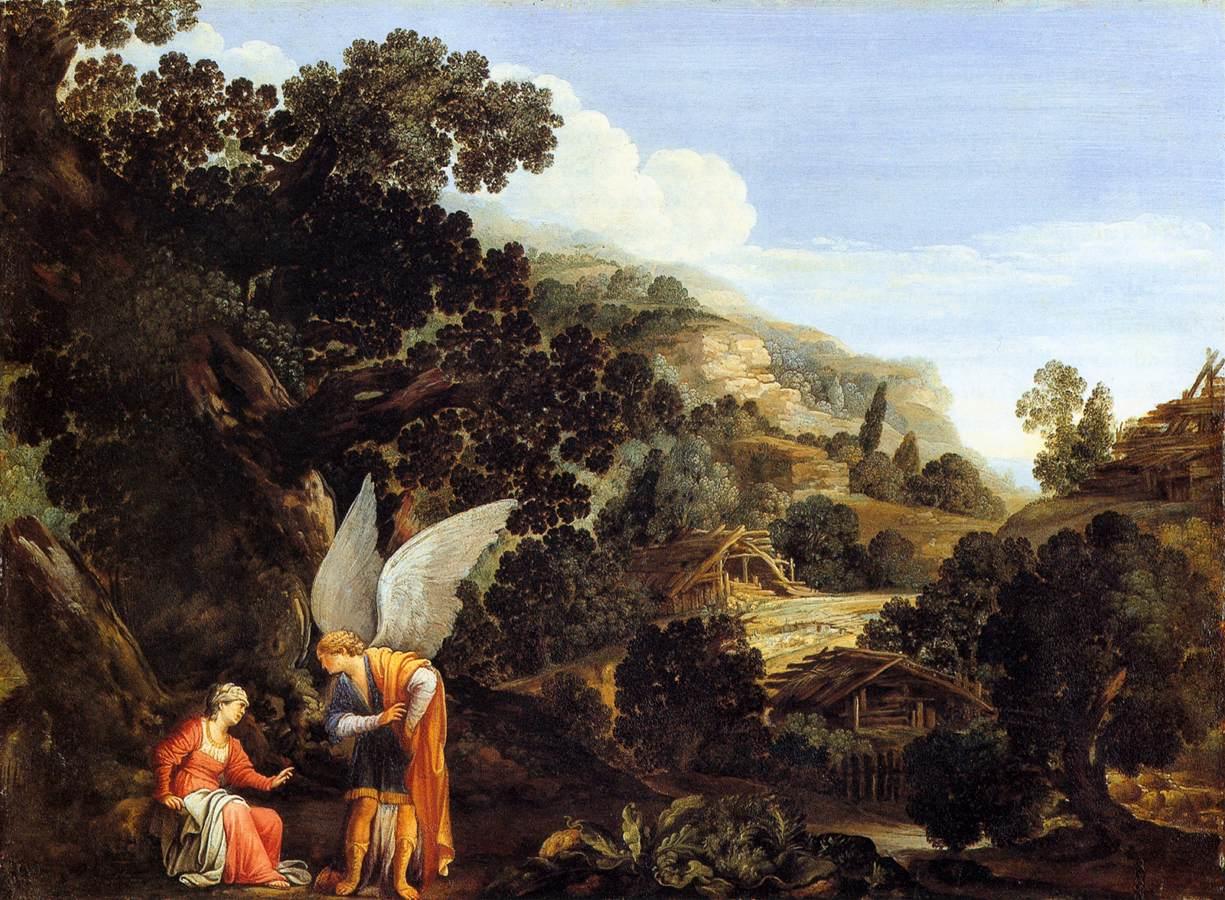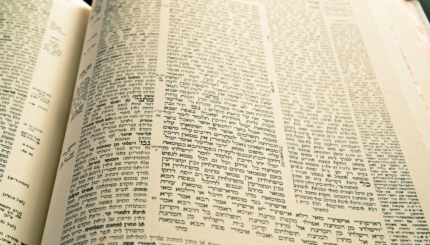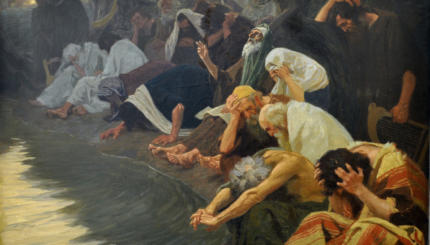Some of the best-known women in the Torah are barren. When the matriarchs Sarah, Rebecca, and Rachel struggle to conceive, Israel’s very future hangs in the balance. As the nation grows, women in the Bible continue to struggle with and overcome infertility. One of those women is Eshet Manoah, the mother of one of the most fabled heroes of the pre-monarchic period in Israel’s history: Samson.
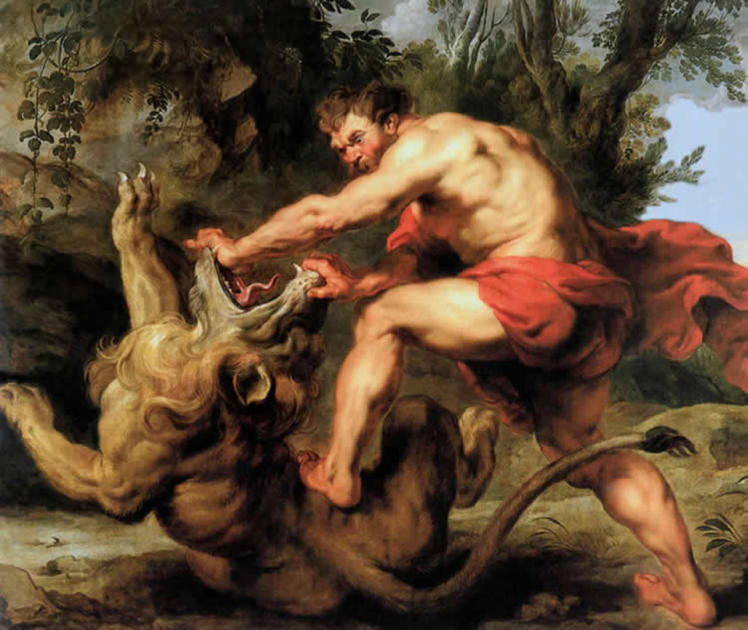
“Eshet Manoah” means, simply, “wife of Manoah.” The couple, from the tribe of Dan, is introduced in Judges 13, which serves as the haftarah for Parashat Naso (more on the connection to Naso below). We are never told the woman’s name. From a distance, her story appears to follow a pattern familiar from the Torah. The childless couple is greeted by an angelic visitor who announces that Eshet Manoah will miraculously conceive. The story ends with the birth of her son, the mighty Samson. But upon closer inspection, this story is anything but the predictable fulfillment of a familiar trope.
Let’s begin with the angel, who immediately calls to mind the three visitors who came to Abraham and foretold Sarah’s miraculous conception (Genesis 18). In pointed contrast, it is Eshet Manoah herself –– not her husband –– who receives the angelic visit. The angel issues what sounds like the first-ever surgeon general’s warning: “Take care not to drink wine or other intoxicant, or to eat anything unclean, for you will soon conceive and bear a son.” In fact, these abstentions are not medical advice. Rather, they are given because, as the angel continues, “the boy is to be a Nazirite to God from the womb onward.”

Help us keep Jewish knowledge accessible to millions of people around the world.
Your donation to My Jewish Learning fuels endless journeys of Jewish discovery. With your help, My Jewish Learning can continue to provide nonstop opportunities for learning, connection and growth.
A Nazirite was someone who had taken a vow to live an exceptionally strict and holy lifestyle. Nazirites did not cut their hair, drink intoxicants, or become ritually impure. Here, we have the first connection to Parashat Naso, which describes the special laws and practices associated with Nazirites. While the Nazirites depicted in the Torah voluntarily accept these prohibitions upon themselves in adulthood for a specific duration of time, Eshet Manoah’s son would apparently be a Nazirite already in utero, and for the rest of his life.
Following this exciting encounter, Eshet Manoah runs to tell her husband, “A man of God came to me; he looked like a divine angel, exceedingly awe-inspiring.” It is here that the story introduces one of its most surprising elements: humor. Manoah comes off as, at best, dense. Upon hearing the news of her divine encounter, he pleads to God –– the word for plea, vayyetar, is the same as when Isaac pled for Rebecca to conceive––saying, “Let the man of God whom you sent come to us again so that he may instruct us what we are to do with the child.” Yet in just the previous verse, his wife had told him the detailed instructions that the angel had already relayed! Was he not listening?
Of course, it’s also possible that Manoah’s question was just a pretense for something more sinister: perhaps he suspected that his wife had conceived from an extramarital affair, and that her extraordinary claim of an angelic encounter was just a way to cover her tracks — to explain a pregnancy that had previously seemed impossible. This prospect creates a second connection with Parashat Naso, which describes the harrowing ritual for identifying an adulterous wife.
In any case, God does send the angel back at Manoah’s request –– but, hilariously enough, once again only to his wife: “The divine angel came again to the woman; she was sitting in the field, and Manoah her husband was not with her.” Undoubtedly eager to be vindicated, Eshet Manoah hurries to tell her husband, hoping he will catch a glimpse of the visitor.
This time, the angel deigns to speak with Manoah, who still seems unaware that the visitor is divine. When Manoah asks the angel’s name, the angel refuses to answer: “Why do you ask my name? It is unknowable.” When Manoah bids him to stay a while for a meal, the angel gruffly suggests that he sacrifice to God instead. Manoah agrees, and as the animal burns on the altar, the angel ascends heavenward on the flames. At this point, there can be no doubt about his divine identity.
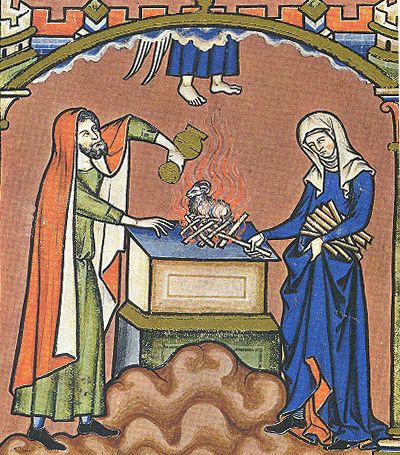
Manoah promptly panics that, having come face to face with a divine being, he and his wife will die. (Never mind that Eshet Manoah had already lived through an encounter with this angel once before.) In a final moment of levity, a calm and cool Eshet Manoah reassures her distraught husband: “Had the Lord desired to kill us, he would not have accepted our burnt offering and grain offering, nor would he have shown us all these things [that we are to do for the child].”
We know very little about Eshet Manoah — not even her name. Nevertheless, she emerges as the main character of this brief but exciting story. Married to a man who doesn’t seem to believe or understand anything that’s going on, Eshet Manoah displays the grace and grit necessary to manage an extraordinary situation. Although she is rightly remembered as the mother of one of Israel’s greatest heroes, it should not be lost that as a model of women’s agency in a patriarchal world, she too is a hero in her own right.
Want to get to know more amazing, complicated, and relatable biblical personalities? Sign up for a special email series here.
